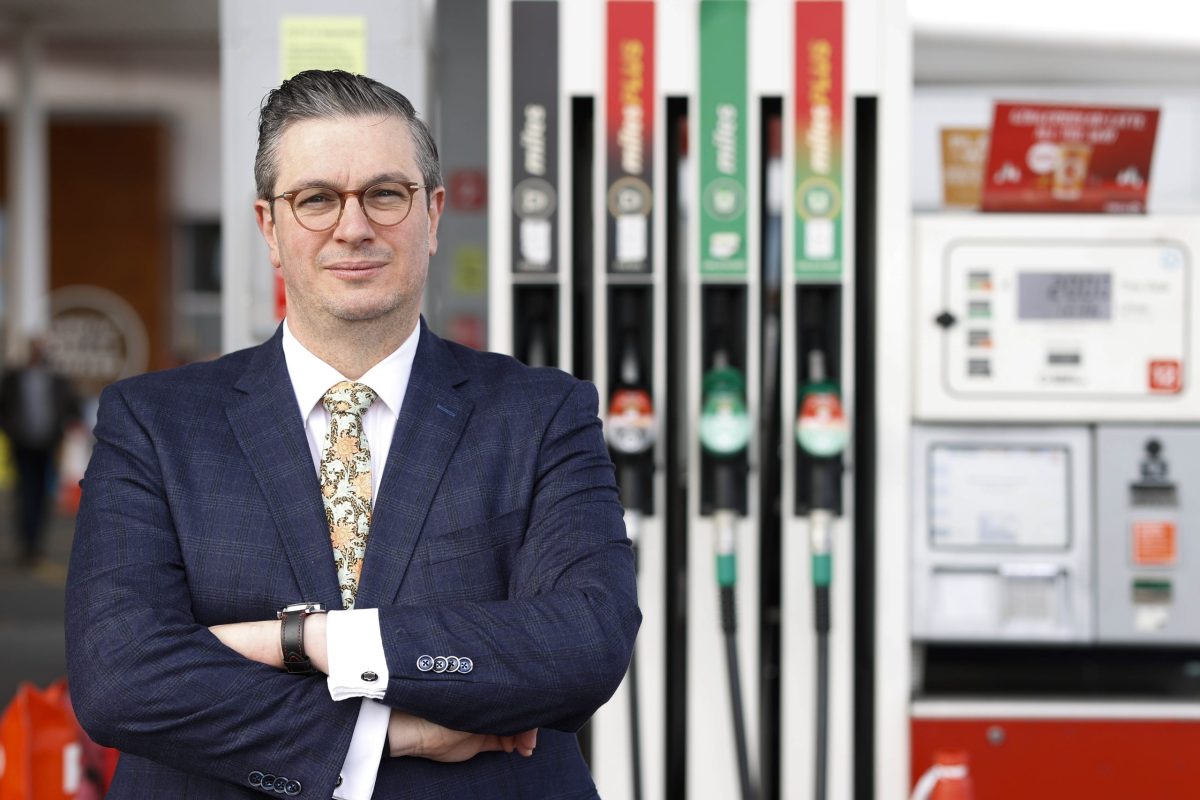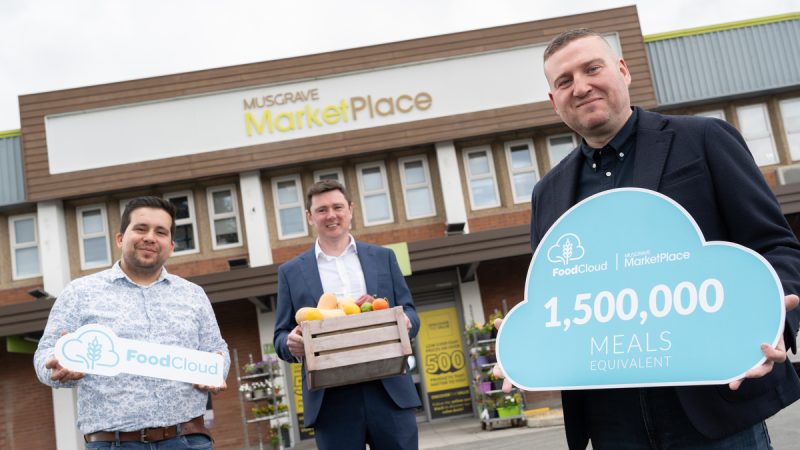‘New normal’ for fuel supply after turbulent spell: Kevin McPartlan

Fuel supply to Ireland is now ‘pretty comfortable’ after a turbulent spell earlier this year as suppliers were forced to seek out new sources, Fuels for Ireland CEO Kevin McPartlan says.
“Things have calmed down and prices have begun to drop. There’s a new normal in play. Suppliers and supply routes, shipping routes and all sorts of things have been bedded in the last 4-5 months since the start of the war in Ukraine,” he says.
“The strength of the dollar is still having a fairly significant impact on fuel prices, but things have begun to calm down and we’re hoping that we’re coming into a period of greater stability.
“But of course there’s no guarantees on anything – we don’t know but we’re hoping that that’s the case.”
Successful pivot
Fuel companies have pivoted successfully to new supply chains since the start of the war on Ukraine and those supply relationships have now bedded in, Kevin says.
“People know who they’re dealing with, they know their ways of doing business, the new shipping routes – all are now well established. It’s not to say that we had to replace great quantities of our suppliers, but there have been some new suppliers, or more business done with some suppliers and more shipping or whatever,” he says.
“It’s pretty stable and what it means is, as of today we have very, very strong commercial stocks, we have no cause for concern on our delivery pipeline going forward – and of course if there were to be any issue we have the NORA supplies that are held by the government anyway. So we’re pretty comfortable.”
Threat from switch
He does have one caveat, however – if further supply disruption prompts other countries to switch to oil for electricity generation.
“The one thing that you have to say for the sake of completeness would be that if there were to be some other very significant disruption to market, we may have to make other changes or have to look again at how things are done. But that’s a normal part of doing business,” he says.
“We’re used to dealing with the unexpected, we’re used to dealing with things not going quite to plan and we’ve always successfully managed that.
“The one thing that we and government and anybody in the industry throughout the world will be cautious about is that if the supply of natural gas to Europe is very severely compromised, then you may see some European states switching to oil for their electricity generation. So you could see a scenario in which those gas powered power stations might decide to start using oil, which would put a very significant extra demand.
“But we can only deal with what’s in front of us and as we stand at the moment we’re pretty comfortable with our preparedness to deal with the winter in the context of the horrible situation in Ukraine.”
Legal action
Over the summer Fuels for Ireland has warned the government that it’s willing to take legal action if they attempt to implement the new Energy Efficiency Obligation Scheme in the way they intend.
“Essentially, under a revised Energy Efficiency Obligation Scheme, the government is attempting to make the fuel industry responsible for delivering 50% of the energy consumption reduction in the transport sector,” Kevin says.
“The problem with that is the way that you reduce energy consumption in the transport sector is to provide more public transport, to provide more active transport options and to have more energy efficient vehicles, none of which are in the gift of Fuels for Ireland and its members.
“What this will mean is that if they were to implement this plan, it’s likely to have an impact of a number of cents per litre of fuel which our consumers would be forced to pay if the government doesn’t manage to provide the efficient, reliable, regular, safe public transport plan that it says it’s going to deliver to reduce the need for private vehicles and so on.”
“It’s an action that we will take very reluctantly because we think the far more sensible thing will be to sit down with the department and work this stuff out, but they have shown little enough appetite to do that.”
Strong prospects
Fuels for Ireland has received opinion from senior counsel that this legal action’s prospect of success is very strong.
“We’re still hoping that the government will sit down with us and work out a way to go forward and look again. Nobody is denying the need to reduce energy consumption and to make sure that the energy we do consume is derived increasingly from renewable, sustainable, low and no carbon sources,” Kevin says.
“We also have to recognise where we are right now, and that is we’re in a country where 50% of the entire energy needs are being met by oil. If we were to shut off the taps at midnight tonight, ambulances would be left without fuel, homes would be left without heating, all this sort of thing. You would have a massive catastrophic impact on society and the economy instantly.
“So that’s absurd, we’re not going to shut off the taps, but let’s be frank, it’s equally absurd to think that we just carry on as we are. Forecourt business people know that they are not going to be running their business along the same lines as they are now in 10, 20 and 30 years’ time. If you’re going to depend on selling petrol, diesel and kerosene, you will not be in business.
“So we’re all looking at the alternatives, we’re all looking at how we increase EV charging facilities but also looking at advanced, synthetic and biofuels, we’re looking at the options for hydrogen, and all of these things need to be discussed. But we have to have a sensible approach and I think sometimes that’s missing in the government’s policy making but also in some of the public debate on the subject and the political debate on the subject. We need to get real.”
To read the full feature in Ireland’s Forecourt & Convenience Retailer, click HERE.








